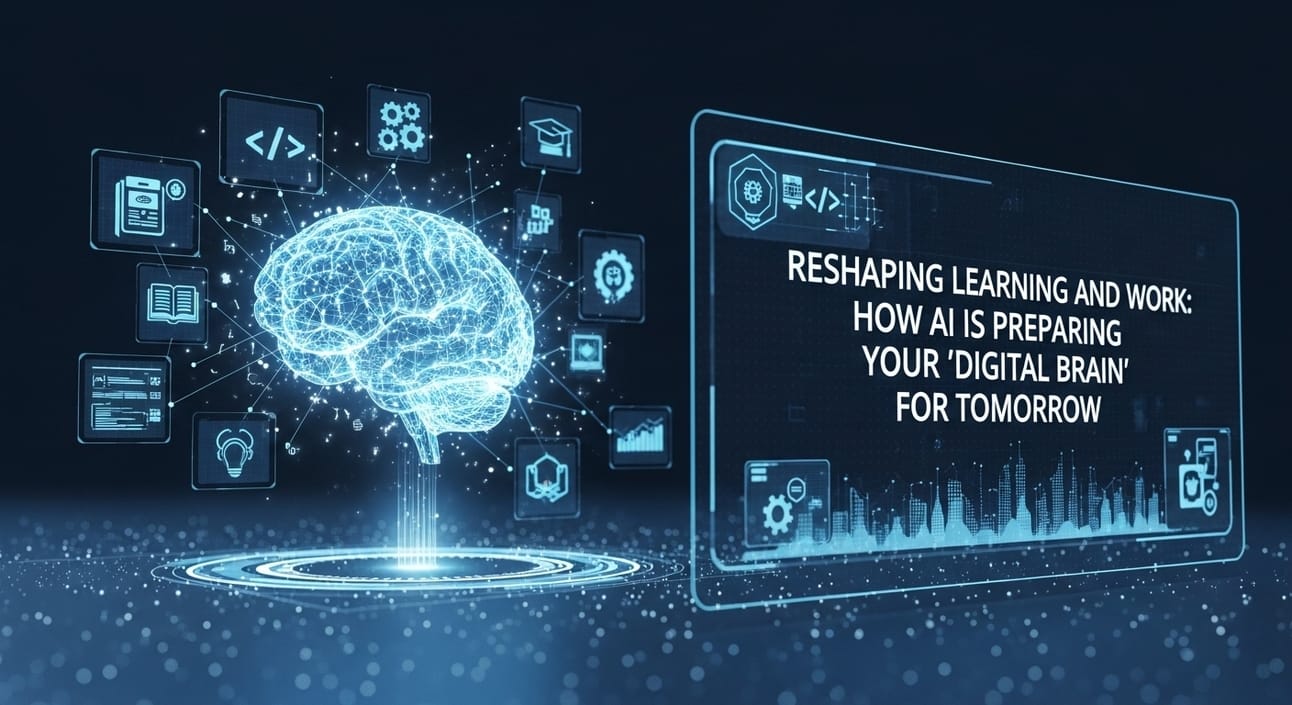- Digital Brain
- Posts
- Reshaping Learning and Work: How AI is Preparing Your 'Digital Brain' for Tomorrow
Reshaping Learning and Work: How AI is Preparing Your 'Digital Brain' for Tomorrow

Hello, Digital Brain reader!
We've explored the cutting edge of AI, from its deep learning capabilities and ethical considerations to its potential to merge with our very biology. Today, let's bring it closer to home and discuss a topic that touches everyone: how Artificial Intelligence is fundamentally reshaping the landscape of work and education. Far from being a distant threat, AI is already here, transforming jobs, demanding new skills, and redefining what it means to learn and thrive in the 21st century. It's time to prepare your "Digital Brain" for this evolving reality.
The Shifting Sands of Work: Automation and Augmentation
The narrative around AI and jobs often swings between two extremes: mass unemployment or utopian productivity. The reality is more nuanced and dynamic:
Automation of Routine Tasks: AI and robotics are increasingly taking over repetitive, predictable, and data-intensive tasks. This includes data entry, basic customer service, routine accounting, and even some aspects of legal research or medical diagnostics. This doesn't necessarily mean job loss, but rather a shift in job responsibilities.
Creation of New Roles: As old tasks are automated, entirely new roles emerge. We're already seeing demand for AI trainers, prompt engineers, AI ethicists, data scientists, machine learning engineers, and AI-driven user experience designers. These are jobs that didn't exist a decade ago.
Augmentation of Existing Roles: For many, AI will act as a powerful co-pilot. Doctors will use AI for diagnosis support, lawyers for case research, marketers for campaign optimization, and software developers for code generation and debugging. AI enhances human capabilities, allowing professionals to focus on higher-level, more creative, and strategic tasks.
Shift to Skill-Based Work: The focus is moving from specific job titles to transferable skills. Adaptability, critical thinking, problem-solving, creativity, and emotional intelligence are becoming paramount, as these are areas where human intelligence still holds a significant edge over AI.
Education in the AI Era: Personalized Learning and Lifelong Adaptation
The traditional education model is also undergoing a profound transformation to prepare the next generation for an AI-powered world:
Personalized Learning Paths: AI can analyze a student's learning style, pace, and knowledge gaps, then tailor educational content and exercises specifically for them. This moves away from a one-size-fits-all approach to highly individualized learning.
AI Tutors and Adaptive Platforms: Intelligent tutoring systems can provide instant feedback, answer questions, and guide students through complex topics, freeing up human educators to focus on mentorship, critical thinking, and social-emotional development.
Emphasis on "Human" Skills: Curricula are increasingly prioritizing skills that AI struggles with: creativity, complex problem-solving, critical thinking, collaboration, communication, and emotional intelligence. These are the uniquely human attributes that will be most valued.
Lifelong Learning and Reskilling: The pace of technological change means that initial education is no longer sufficient. Continuous learning, upskilling, and reskilling will become a norm, with AI-powered platforms facilitating access to new knowledge and training.
Preparing Your 'Digital Brain' for Tomorrow
So, how can you ensure your "Digital Brain" is ready for this future?
Embrace Continuous Learning: View learning as a lifelong journey, not a destination. Stay curious about new technologies and their applications.
Develop Human-Centric Skills: Cultivate creativity, critical thinking, communication, collaboration, and empathy. These are your unique advantages.
Learn to Collaborate with AI: Understand how AI tools work and how to leverage them to enhance your productivity and decision-making. Think of AI as a powerful assistant, not a replacement.
Understand AI Fundamentals: You don't need to be an AI engineer, but a basic understanding of how AI works, its capabilities, and its limitations will be invaluable.
Focus on Problem-Solving: AI excels at finding answers, but humans are still best at identifying the right questions and defining the problems worth solving.
The future of work and education isn't about humans vs. machines; it's about humans with machines. By proactively adapting our skills and mindset, we can harness the power of AI to create a more productive, innovative, and fulfilling future for ourselves and for society.
Stay adaptable, stay curious, and see you in the next edition!
Sincerely,
The Digital Brain Team